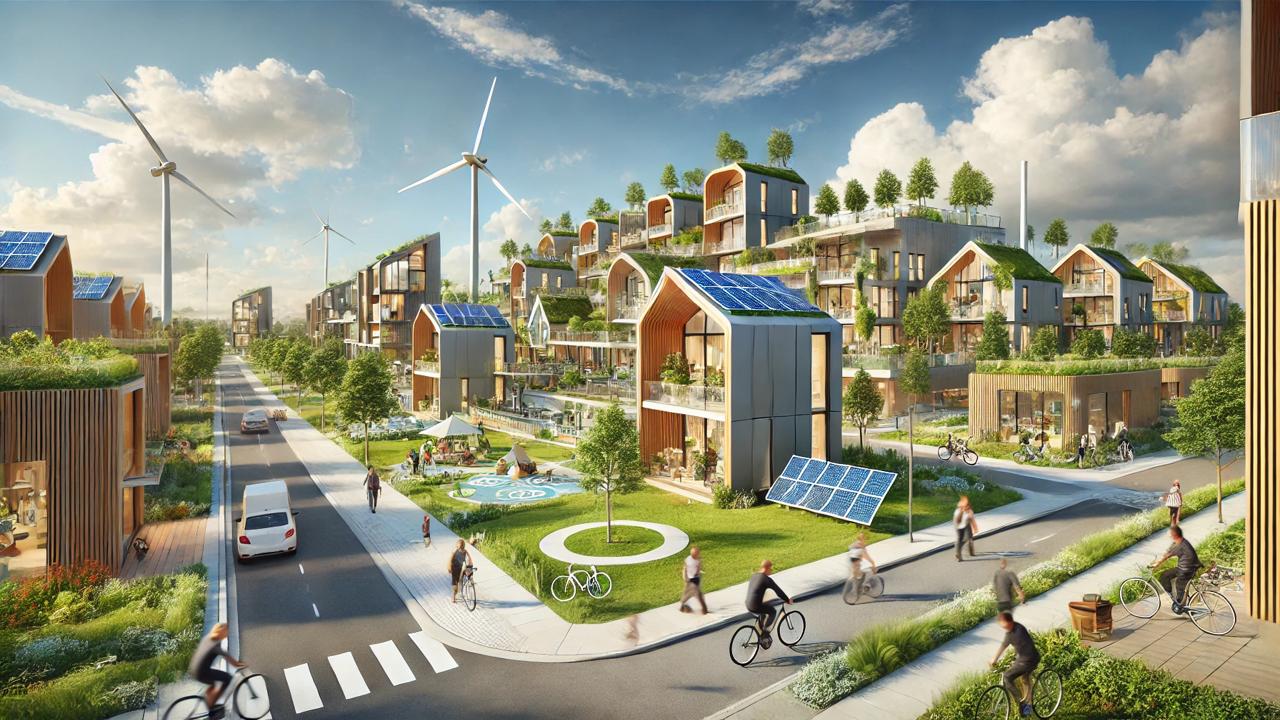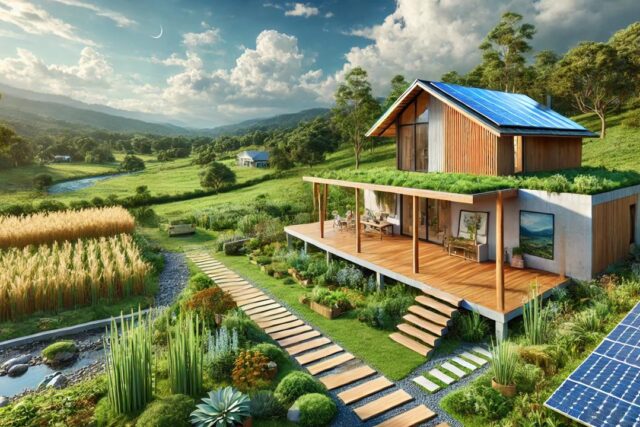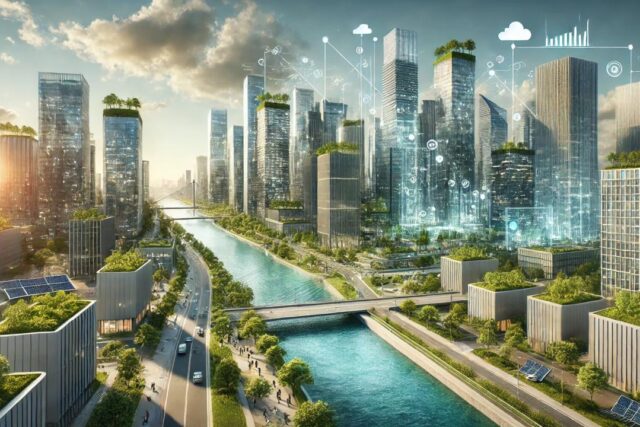
Sustainability has become a key focus in various industries, and the housing sector is no exception. As climate change and environmental concerns continue to grow, Canada embraced eco-friendly housing solutions. With increasing demand for energy-efficient homes, housing in Canada is undergoing a transformation toward sustainability.
From energy-efficient designs to renewable energy sources, sustainable housing is becoming a priority. This article explores the rise of sustainable housing developments, their benefits, and how they are shaping the future of housing in Canada.
1. Understanding Sustainable Housing
Sustainable housing refers to homes designed to minimize environmental impact while maximizing efficiency and comfort. These homes incorporate eco-friendly materials, renewable energy sources, and advanced technologies that reduce carbon footprints. In Canada, sustainable housing includes passive homes, net-zero buildings, and energy-efficient residential complexes.
The push for sustainability in housing stems from increasing awareness of environmental issues, rising energy costs, and government incentives. Homeowners and developers alike are recognizing the long-term benefits of sustainable homes.
2. Key Features of Sustainable Housing
Several features make a home sustainable. These include:
- Energy Efficiency: Sustainable homes use high-performance insulation, energy-efficient windows, and smart appliances to reduce energy consumption.
- Renewable Energy Sources: Many homes now integrate solar panels, wind turbines, and geothermal heating systems.
- Water Conservation: Low-flow fixtures, rainwater harvesting systems, and water-efficient landscaping are common in eco-friendly housing.
- Sustainable Building Materials: Builders use recycled, non-toxic, and locally sourced materials to minimize environmental impact.
- Smart Home Technology: Automated systems monitor and optimize energy and water use, improving efficiency.
3. The Growth of Sustainable Housing in Canada
Over the past decade, Canada has seen a surge in eco-friendly housing projects. From Vancouver to Toronto, sustainable communities are emerging, providing residents with greener living options. Several factors contribute to this rise:
- Government Incentives: Federal and provincial programs offer grants, tax credits, and rebates to encourage sustainable housing.
- Consumer Demand: More Canadians are prioritizing eco-friendly homes due to environmental concerns and lower energy costs.
- Advancements in Green Technology: Innovations in construction and renewable energy make sustainable housing more accessible and affordable.
- Stringent Building Codes: Regulations now require new homes to meet higher energy efficiency standards.
4. Examples of Sustainable Housing Developments in Canada
Several housing developments in Canada showcase sustainability in action. Some notable projects include:
- Dockside Green (Victoria, BC): A master-planned community that integrates renewable energy, green roofs, and water conservation systems.
- Zibi (Ottawa-Gatineau): A net-zero carbon community with energy-efficient buildings and a commitment to sustainable living.
- Green Energy Benny Farm (Montreal, QC): A project that incorporates solar energy, geothermal heating, and green spaces.
- The Heights (Vancouver, BC): A passive house-certified townhouse complex with ultra-low energy consumption.
These developments set a benchmark for future projects and highlight the potential of sustainable urban planning.
5. The Benefits of Sustainable Housing
Investing in sustainable housing offers numerous benefits, both for homeowners and the environment. These include:
- Lower Utility Bills: Energy-efficient homes reduce electricity and heating costs.
- Improved Indoor Air Quality: Eco-friendly materials and ventilation systems create healthier living spaces.
- Reduced Carbon Footprint: Sustainable homes contribute to lower greenhouse gas emissions.
- Increased Property Value: Green-certified homes tend to have higher resale values.
- Resilience to Climate Change: Sustainable designs help homes withstand extreme weather conditions.
6. Challenges Facing Sustainable Housing
Despite the growing demand, several challenges hinder the widespread adoption of sustainable housing in Canada:
- High Initial Costs: Although sustainable homes offer long-term savings, upfront costs can be higher.
- Limited Public Awareness: Many consumers are unaware of the benefits and available incentives for sustainable housing.
- Regulatory Barriers: Some municipalities have outdated zoning laws that slow down eco-friendly housing projects.
- Skilled Labor Shortages: The construction industry faces a shortage of workers skilled in sustainable building techniques.
7. The Future of Housing in Canada
The future of housing in Canada lies in sustainability. As technology advances and awareness grows, green housing solutions will become more mainstream. Several trends will shape the future of sustainable housing:
- Increased Use of Prefabricated Homes: Modular homes designed with sustainability in mind will gain popularity.
- Smart Cities and Green Infrastructure: Urban areas will integrate more green spaces, renewable energy sources, and sustainable transportation options.
- Circular Economy in Construction: Builders will focus on reducing waste and using recyclable materials.
- Stronger Government Policies: Stricter energy codes and financial incentives will push more developers toward sustainability.
Conclusion
Sustainable housing is no longer a niche concept; it is the future of residential development. With increasing consumer demand, government support, and technological advancements, Canada is embracing a greener way of living. Housing developments in Canada are setting new standards in sustainability, proving that eco-friendly homes can be both practical and desirable.
For those looking to invest in a home that benefits both their wallet and the planet, sustainable housing is the way forward. As the movement continues to grow, housing in Canada will become more energy-efficient, environmentally friendly, and future-ready.






Leave a Reply
You must be logged in to post a comment.